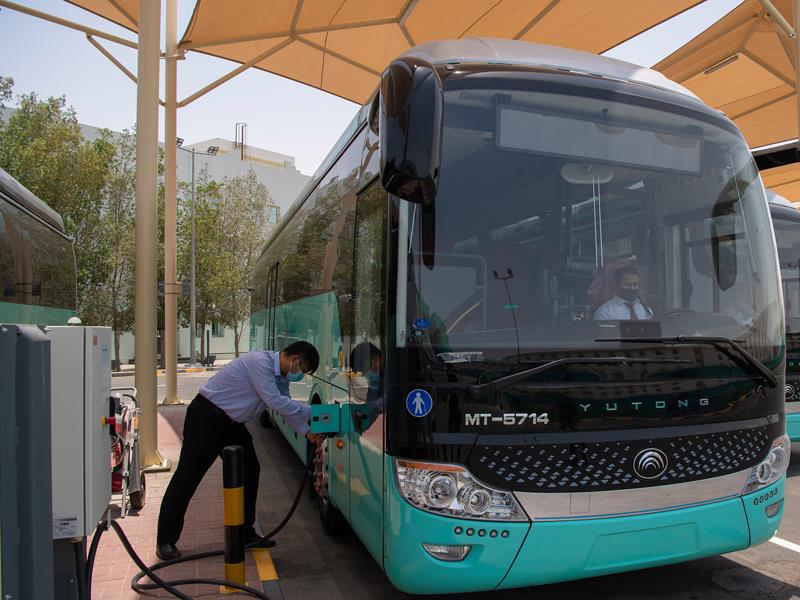(MENAFN- The Peninsula) joelyn baluyut |
The Peninsula
Doha, Qatar: The growing importance of electric vehicles (EVs) in the global transition to sustainable transportation was the centre of discussion in yesterday's session“On the Road to a Greener Future,” at the Qatar Economic Forum powered by Bloomberg.
Le Thi Thu Thuy, Vice Chairwoman of Vingroup JSC and CEO of VinFast, took the stage as the speaker, while the session was moderated by Haslinda Amin, an Anchor at Bloomberg Television and the Host & Editor-at-large of the forum.
The Vice Chairwoman said that the market potential for EVs is immense and reverting to internal combustion engines is not an option.“The market potential is huge for EVs, we can't go back to internal combustion engine vehicles, there are not many players that have the full suite of EVs at affordable pricing like we do, so we feel like the future is very bright. It all comes down to having proper financing in order to take it forward.”
VinFast is the first Vietnamese automaker to diversify into international markets and to begin manufacturing EVs such as electric automobiles and electric scooters.
During the conversation, Amin pointed out that the International Energy Agency (IEA) had highlighted the need for six times more minerals in EV production compared to conventional cars. She asked Thuy about how the company balanced its environmental and transportation goals while developing EVs and promoting sustainability.
Thuy recognised the mineral-intensive nature of EV batteries but emphasised the urgency of transitioning away from internal combustion engine vehicles.
She explained that VinFast had embarked on its EV journey three years ago.
Initially, they started with internal combustion engine vehicles to gain knowledge about vehicle production before transitioning to EVs.
While acknowledging the need to optimise mineral consumption in battery production, Thuy expressed optimism about technological breakthroughs in battery recycling and advancements in battery technology. She highlighted collaborations with partners like Li-Cycle, a company specialising in battery recycling, which has shown the potential to recycle up to 95% of critical minerals. She predicted battery recycling and sustainable practices would significantly improve within five years.
Regarding EV range, Thuy revealed that current EVs comfortably offer a range of 300 to 400km. However, she assured the audience that within the next two to three years, EVs could achieve ranges of 800 to 1,000km, pending improvements in battery technology and cost considerations.
“As the battery technology advances, we improve the energy density, improve the performance of the battery. Software charging, the longer range for the car as well and then there has been a lot of improvement on the charging station, charging technology, for the vehicles as well.”
The discussion then shifted to the importance of a circular economy in the EV industry, specifically focusing on the recycling of batteries. The Vice Chairperson and CEO emphasised the significance of collaboration among all stakeholders in building a sustainable supply chain.“Battery recycling is still in the very nascent stage of development, but I think there's a lot of a promising future.” Addressing the issue of cost barriers for consumers, Amin highlighted the high prices of EVs in certain countries, such as Singapore. Thuy stressed the role of government policies and incentives in driving EV adoption, citing successful examples from countries like Norway and Sweden.
Moreover, the conversation touched on the potential for the Association of Southeast Asian Nations or ASEAN in building an EV ecosystem.
Thuy highlighted the strengths of different ASEAN countries, such as Vietnam, Thailand, Indonesia, and Singapore, in contributing to the development of the EV industry.
“I think together we can push forward to make ASEAN build an ecosystem for EV – I mean it takes time and it takes collaboration not only with the government to government but also [the] private sector needs to play a role, but I have a strong belief that ASEAN can be a good place to build [this ecosystem].”



















Comments
No comment